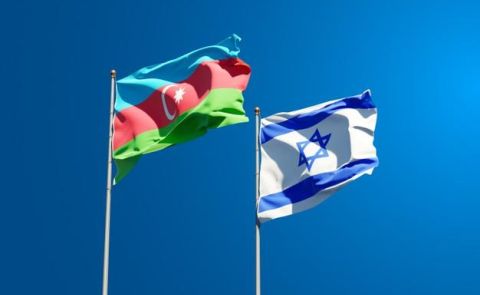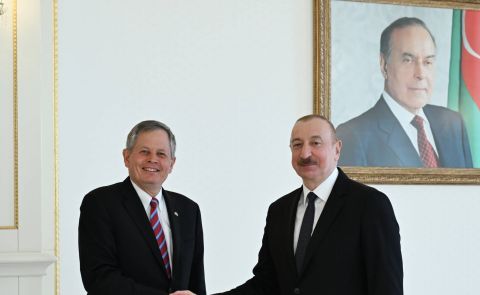
Georgian President Advocates for EU-Aligned Coalition Government Amidst Russian Threats
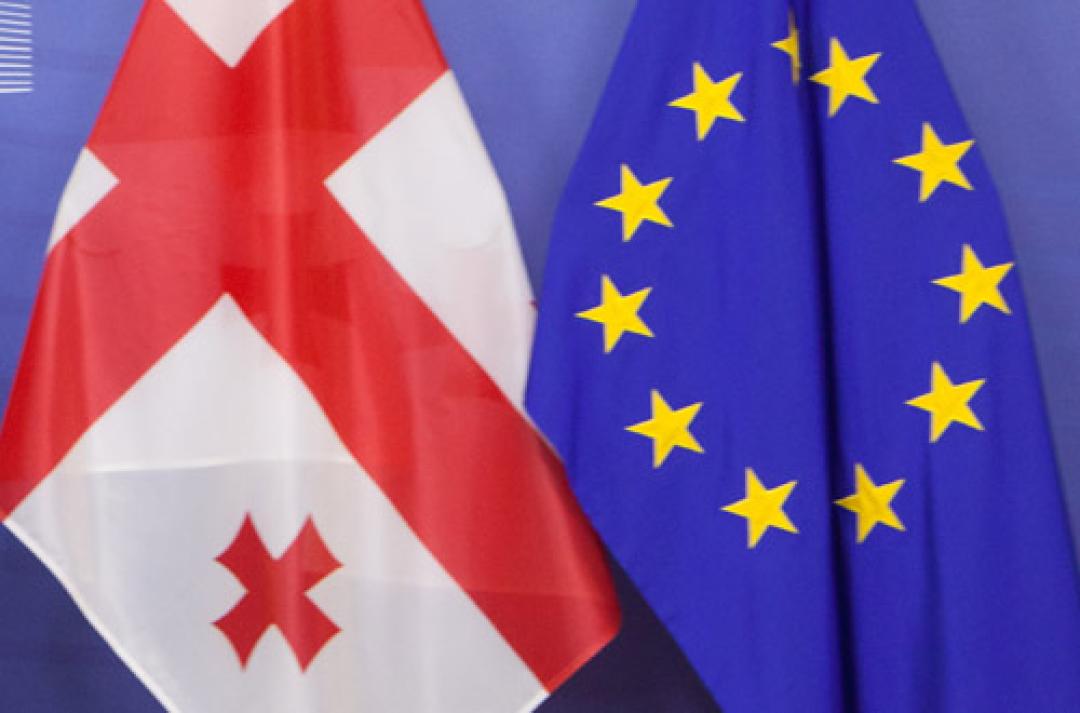
On March 6, Georgian President Salome Zourabichvili expressed her perspective on the possibility of forming a coalition government during a meeting with the media. She indicated that she sees herself playing a significant role outside of the government and emphasized the importance of unity in pursuing negotiations with the European Union.
Zourabichvili highlighted the ease of forming a coalition government based on shared goals, particularly negotiations with the European Union. She suggested that forming a coalition government does not necessarily mean excluding the ruling party, Georgian Dream, but rather a collaborative effort to advance the country's interests. While acknowledging the challenges in fulfilling all recommendations, Zourabichvili emphasized the importance of addressing key priorities for the country's progress. She reiterated her belief that her role remains significant, especially in fostering unity among political parties and identifying common ground for Georgia's European aspirations.
President Zourabichvili responded to a question from Merab Metreveli, the host of "Palitranius," regarding statements made by leaders of the "Georgian Dream" party about her. Zourabichvili addressed accusations of being associated with the "National Movement" party by stating that those making such claims should remember their own history and where they stood during the rule of the "National Movement." Zourabichvili criticized those within the "Georgian Dream" party who accused her of being affiliated with the "National Movement," asserting that they conveniently forget their past connections to the party. She emphasized that those currently accusing her of ties to the "National Movement" were nowhere to be found during the years when the "National Movement" was in power, specifically referencing the years 2006-2008. Zourabichvili challenged their credibility by questioning their involvement during critical periods of Georgian politics, highlighting their absence from public discourse and significant events. She pointed out that she did not recall encountering any of them during that time, whether in public gatherings, political battles, or important speeches.
Zourabichvili also expressed concerns about possible Russian interference in the 2024 elections in Georgia, highlighting the funding of certain groups and the dissemination of propaganda as potential tactics. She noted that Russia has a history of interfering in elections in various countries, including the United States, and that similar interference might occur in Georgia. Zourabichvili emphasized that Russian intervention could involve financing fringe groups, direct propaganda campaigns, and cyberattacks aimed at deepening destabilization and polarization within Georgian society. Despite acknowledging Russia's experience and familiarity with Georgian politics, Zourabichvili expressed optimism, stating that the Georgian population is resilient and less susceptible to manipulation than some Western countries. Regarding the alignment of Georgian Dream's interests with those of Russia, Zourabichvili cautioned against speculating about Russia's intentions. Instead, she emphasized the importance of prioritizing Georgia's interests and maintaining a non-pro-Russian stance in governance. Zourabichvili stressed that any perception of pro-Russian tendencies within the Georgian government would be unacceptable to the Georgian people, who strongly desire to maintain independence from Russian influence. In response to questions about the potential convergence between the Georgian Dream and Russian interests, Zourabichvili acknowledged the presence of some indicators but reaffirmed her commitment to preventing any pro-Russian government from gaining power in Georgia. She underscored the Georgian population's determination to remain independent and emphasized that any government displaying pro-Russian tendencies would not be tolerated by the Georgian people.
Moreover, the Georgian leader expressed reservations about the strategic partnership document with China, highlighting the need for clarity and transparency in Georgia's foreign policy decisions. Zourabichvili emphasized the importance of understanding Georgia's historical context, noting that while the country maintained a balance between different empires in previous centuries, modern geopolitics requires clear and deliberate choices in selecting partners. She questioned the lack of transparency surrounding the development and discussion of the strategic partnership document, stating that it was not adequately debated within the government or Parliament. Regarding the document's content, Zourabichvili raised concerns about certain paragraphs, particularly those related to sovereignty and China's stance on Georgia's occupied territories. She pointed out an imbalance in the document's recognition of China's sovereignty while failing to address Georgia's territorial integrity issues. Zourabichvili also questioned the document's evaluation of China's governance model, especially considering Georgia's own democratic reforms. She stressed the importance of maintaining alignment with democratic principles in Georgia's foreign policy. In response to questions about the government's intentions regarding the partnership with China, Zourabichvili refrained from speculating on their motives but emphasized the need for transparency and coherence in foreign policy decisions. She called for corrective measures to address deviations from established principles and ensure that Georgia's main partners are not left uncertain about the country's foreign policy direction.
Furthermore, President Zourabichvili offered insights into France's evolving stance towards Russia, attributing its current strict position to past illusions and evolving geopolitical realities. Zourabichvili suggested that France historically harbored a certain fondness for Russia, reflected in its foreign policy approach. France and Germany once sought to influence Russia through economic cooperation and friendly relations, nurturing an illusion of transformation within the country. However, the conflict between Russia and Ukraine shattered these illusions, revealing the true nature of Russia's ambitions and foreign policy. Zourabichvili emphasized that the war in Ukraine served as a wake-up call, forcing European nations, including France, to confront the reality of Russia's imperialist aspirations. She noted that the shift in France's perspective is emblematic of a broader awakening across Europe. European countries have begun acknowledging the limitations of engaging with Russia solely through diplomacy and cooperation. The realization has prompted a reevaluation of European foreign policy priorities, with an emphasis on recognizing and addressing Russia's assertive actions and geopolitical ambitions. Zourabichvili highlighted the significance of this shift, noting that it reflects a broader acceptance within Europe of the need for more proactive and assertive approaches in dealing with Russia. She suggested that Europe's awakening was a departure from past diplomatic strategies prioritizing engagement over confrontation.
Additionally, the president addressed the media, discussing attempts by certain groups to portray her in a negative light and her stance regarding the Georgian Church. Zourabichvili acknowledged that there are efforts by some circles to label her as the leader of the "National Movement" and an atheist. She pointed out the irony of individuals who previously had no strong beliefs suddenly engaging in religious practices, such as attending communion and seeking photo opportunities with the patriarch, for the sake of public relations. Despite these attempts to discredit her, Zourabichvili reiterated her steadfast beliefs and commitment. Regarding her statement about the Georgian Church, Zourabichvili clarified that she expressed her hope for the Church to remain pro-Georgian and pro-European rather than pro-Russian. She emphasized the historical role of the Georgian Church in the country's independence. She stressed that her remarks were based on her beliefs and convictions. Zourabichvili expressed frustration with the constant attempts to discredit her from various quarters despite assertions that she holds no significant role. She questioned the need for ongoing disparagement if her position was considered insignificant. Despite the challenges and accusations, Zourabichvili affirmed her unwavering identity and principles, emphasizing that nothing has changed in her beliefs and values.
Lastly, President Zourabichvili addressed questions about the pardon of Mikheil Saakashvili and restoring his citizenship during a meeting with journalists. Regarding the pardon of Mikheil Saakashvili, Zourabichvili emphasized that it is within her discretionary right as the President of Georgia. She stated that she has made her position clear domestically and internationally, including during a recent visit to London. Zourabichvili highlighted that she would not succumb to pressure or interventions from any entity, whether internal or external, when making her decision. She refuted claims that pressure or proposals have influenced her stance, emphasizing that interventions did not occur in this matter. Addressing the question of restoring Saakashvili's citizenship, Zourabichvili reiterated that there has been no demand for such action, and she does not engage in answering hypothetical questions. She expressed frustration with attempts to undermine her authority and decisions, emphasizing that her statements should be taken at face value without interpretation or speculation.
See Also

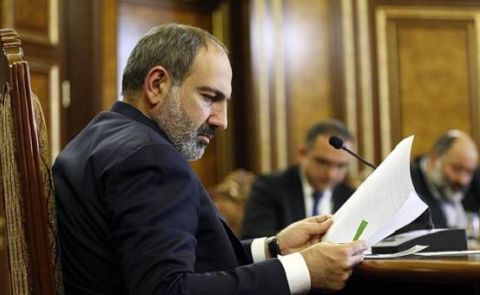
Pashinyan Commemorates First Republic Day, Highlights Progress in Sovereignty and Peace Efforts

Israeli Ambassador to Armenia Acknowledges Challenges but Optimistic About Future Armenian-Israeli Cooperation
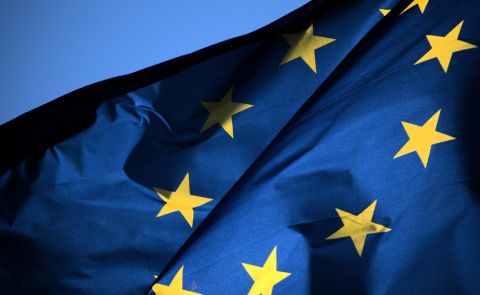
EU Plans Closer Cooperation with Azerbaijan, Georgia, Türkiye, and Other Black Sea States
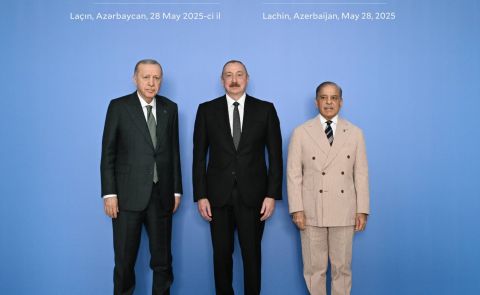
Azerbaijan, Türkiye, and Pakistan Highlight Growing Strategic Cooperation at Lachin Summit
